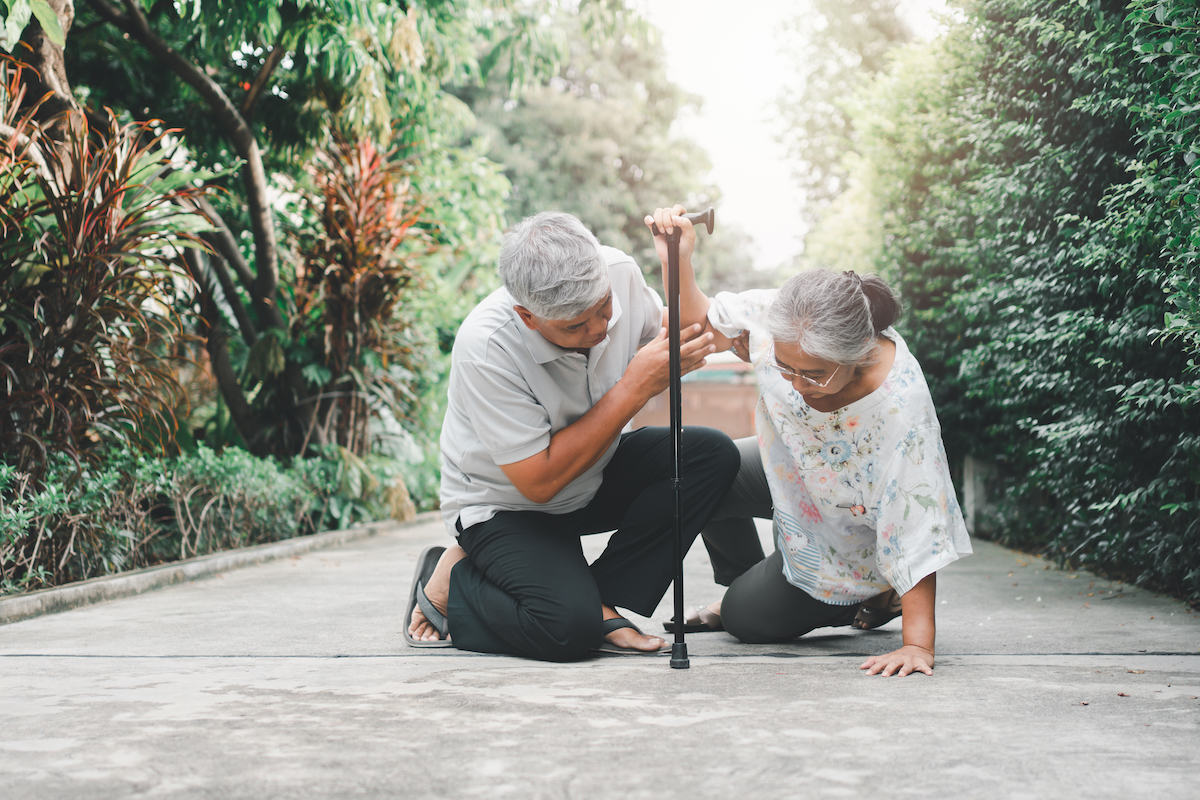
What To Do After a Senior Fall
As we age, the likelihood of taking a tumble increases, as does the severity of the consequences of a fall. Knowing what to do if that happens to a loved one can make a difference. Knowing to handle the situation can help you remain calm and make smart decisions in the moment, saving precious time.
Read on below to find a helpful guide to prepare yourself for the right steps to take after a senior fall:
How Do You Immediately Respond to a Senior Fall?
You should always keep your cool in an emergency as much as possible. Don’t panic or react in a way that would increase the stress of an already scary situation. Instead, remain calm, and provide reassurance to help the senior stay calm.
By assessing the situation, you should respond to a senior fall as quickly as possible. If the injured party is unresponsive, you need to call 911 immediately. If the senior is responsive, you should ask them a few questions to find out what happened and test whether a concussion is possible. Ask them to describe the accident, what day it is, or if they know where they are.
While asking questions, you must also assess their physical condition visually. Check closely for bruising, discoloration, and other signs of potential injury.
Next, check to see if the injured senior can get up on their own. If there is any uncertainty, don’t ask them to force it, and encourage them to lie still. Don’t grab their limbs too hard or pull them up too quickly; be gentle, patient, and as careful as possible. Don’t move them if they don’t feel comfortable or if you think there might be a chance they hurt their back or neck.
Don’t force anything if you can’t touch the senior without them wincing or expressing pain. Instead, call 911 and keep them still and calm until the paramedics arrive.
If an ambulance doesn’t seem necessary right away, stay with the senior anyway and keep a close eye on their condition for the rest of the day. It’s possible a person may not realize how injured they are until later. Sometimes, a senior may try to downplay their injury at first.
What Else Should Be Assessed After a Senior Fall?
Even if the senior seems perfectly fine, every fall must be taken seriously. As people age, our bodies get weaker, our bone density changes, and bones become more brittle. It’s much easier for bones to break and for skin to bruise. A senior may try to downplay a fall because they feel embarrassed or don’t want to be seen as helpless and old. Remind them that no matter a person’s age, anyone can be seriously injured in a fall.
Even if a senior insists there were one-in-a-million circumstances leading to the fall, that’s not a risk you want to take. Investigate if there could be underlying medical conditions that make a senior more vulnerable. For example, low blood pressure can cause fainting, which could lead to a fall.
Prevention measures also need to be taken very seriously, including double-checking medications. Some could have side effects that cause fatigue, light-headedness, or fainting. The anticholinergic family, which includes medications for depression, nausea, bladders, and allergies, could also be the culprit. If the senior has dementia, some of their medications may have a sedating effect.
How Do You Prevent Future Senior Falls?
Even if there’s no injury that needs medical attention right after the fall, you should schedule a medical check-up with a primary care physician to discuss future fall prevention. Be sure to bring a list of the senior’s prescriptions because their doctor will be extra knowledgeable about the potential side effects.
You should also speak with their doctor to make sure the senior doesn’t downplay the fall. You will be asked if you’ve noticed anything unusual with the senior’s behavior, including changes in gait, worsened vision, loss of appetite, increased fatigue, and more.
A doctor may suggest physical or occupational therapy, or they may refer you to a specialist, which could include ophthalmologists to ensure eyesight isn’t the issue or podiatrists to see if gait and balance are the culprits. If existing conditions increase the fall risk, these specialists will provide solutions.
Lifestyle Changes to Prevent Senior Falls
Even if physical therapy or medical specialists aren’t necessary, the doctor will encourage a healthy lifestyle, including proper nutrition, hydration, good sleep habits, and light exercise.
You’ll also want to minimize hazards in the home. Common obstructions include electric cords and loose carpets. Secure carpets and rugs with tape, and cords aren’t dangling. If visibility is an issue, improve lighting in the home. Try rearranging furniture so seniors don’t have to get up and walk over the place to grab things.
If your loved one doesn’t have one already, you could suggest walkers or canes to assist with mobility. While many seniors resist using these, you should emphasize how much of a difference they can make in preventing future falls. Walkers are often preferable to canes, especially if balance is a significant issue.
Arizona Assisted Living Knows How to Handle Senior Falls
Arizona assisted living communities know precisely what to do after a senior fall and how to avoid one from happening altogether. Resident monitoring means that staff will know as soon as a fall occurs. The quick response time, on-site attention, and 24/7 medical resources can alleviate even the highest anxiety over a fall. Assisted living apartments and rooms are also specially designed to be as safe as possible, preventing more potential falls than the average residence.
Seniors can be resistant to assisted living because they fear a loss of independence, but at Bridge Water, maintaining that independence is one of our core values. For more information on our assisted living community in Arizona, check out Bridge Water’s website. You can also schedule a tour to see our communities in person.